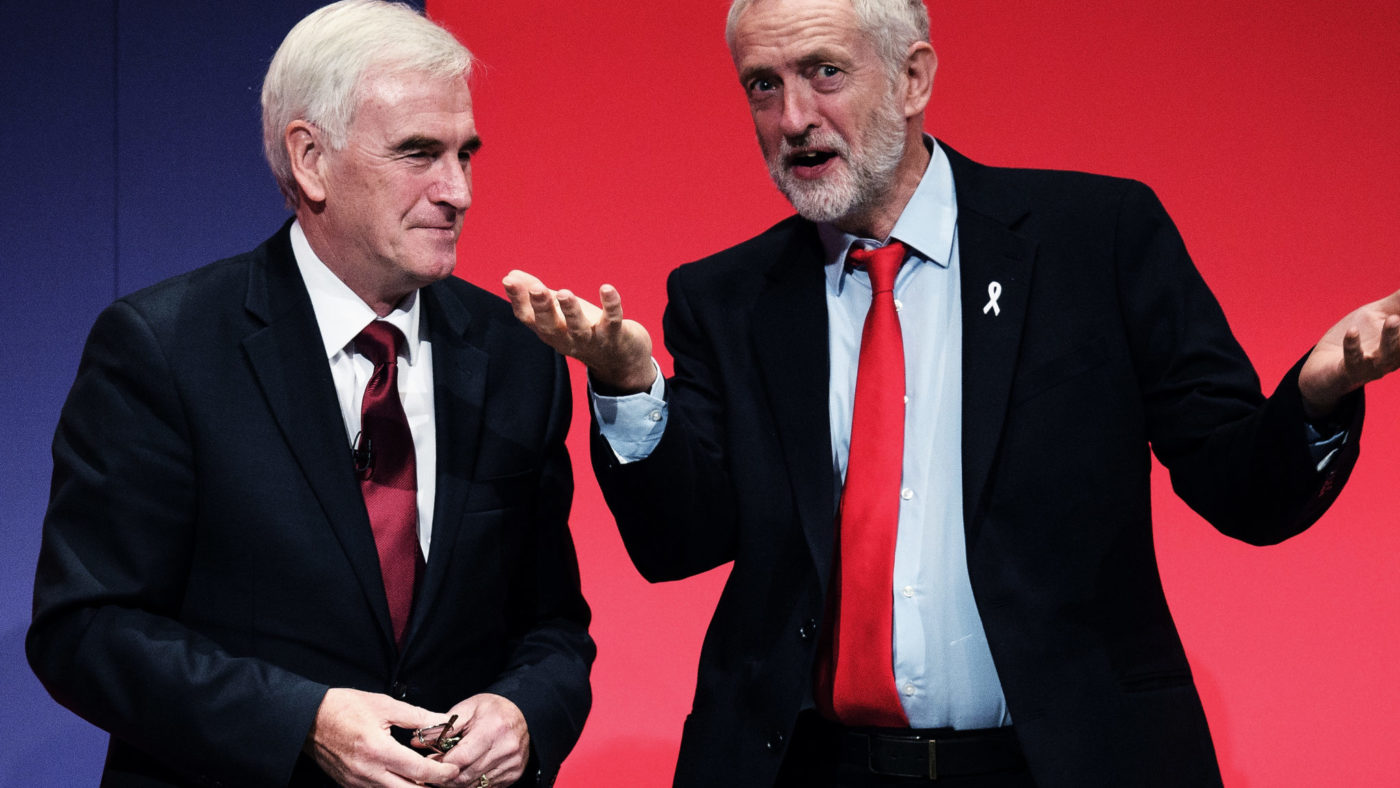Socialism endures because it claims to take power away from ‘the rich’ and hand it to ‘the people’. Leaving aside the fact that socialism necessarily seeks to concentrate power in the hands of a few at the top in order to redistribute wealth and privilege to favoured special interest groups, Labour’s economic policies would also take control away from ordinary citizens and hand it to the rich and powerful in another way, and one which would take decades of economic hardship to reverse.
The Labour leader, Jeremy Corbyn, has bragged of being a “threat” to the financial system, while his shadow chancellor, John McDonnell, has made clear that his ultimate political objective is “the overthrow of capitalism”. Unsurprisingly, both men reserve a visceral loathing for the City of London, which they believe represents the epicentre of Britain’s “casino economy”.
The difficulty for the Labour Party, however, is that if it is to realise McDonnell’s plan for £500bn in extra public spending, it will have no option but to go to the City to raise the capital. While they make no secret of their disdain for financial markets, they are only too eager to take their money.
Of course government borrowing can, when done responsibly, generate beneficial outcomes. It can be used to help pay for new public infrastructure, making us more productive (and therefore wealthier) as a country. It can be used to help fund research and development in our universities, allowing Britain to retain its cutting edge in science and technology.
But when it is used to nationalise industries, as the Labour Party intends, it could not only blow a huge hole in the public finances (the Centre for Policy Studies estimates Labour’s nationalisation plans would cost around £176 billion), but also make us less productive, acting as a serious drag on economic activity.
What’s more, state lending is never conducted as an act of charity – borrowing always comes with conditions attached. Just as businesses must take into consideration the interests of their workers as well as the shareholders who supply them with credit, governments saddled with large amounts of sovereign debt have to satisfy not only their populace, but also the bond markets.
If creditors are to continue lending, they must be confident that borrowers have the capacity to meet their obligations. This gives markets an effective veto over the sorts of policies debtor states are able to pursue.
As a result, Wolfgang Streek, the renowned centre-left German political economist, argues that national borrowing takes sovereignty away from ordinary citizens, who he terms “state people” (Staatsvolk), and places it in the hands of wealthy investors who he calls “market people” (Marktvolk).
In 2010, the coalition government had no choice but to implement austerity because of the power the Labour Party handed ‘market people’ throughout the previous decade by borrowing in ever larger quantities. In order to sustain a functioning welfare state, the coalition needed ‘market people’ to continue lending. As a consequence, it had to keep them happy by making a concerted effort to balance the books and reduce day-to-day spending. Had the government not implemented such measures, markets would simply have pulled the plug. Just ask Greece.
Despite Labour’s populist bank-bashing rhetoric, significantly increasing government borrowing would drastically reduce the ability of the party to levy taxes and regulation on the financial sector. Doing so would not only make Britain less attractive to investors, it would also make London a more expensive place to raise capital, making any further borrowing more difficult as well as more costly. Biting the hand that feeds seldom produces a positive outcome for the aggressor.
Large-scale borrowing would also tie the hands of any future government by reducing their freedom to implement policies which may be at odds with the demands of market players, making them less responsive to the anxieties of their citizens. It would thus trigger a huge transfer of sovereignty away from ‘state people’ and towards powerful ‘market people’, often outside the UK.
Maintaining sovereignty at the level of the citizen is crucial for democracy to function. The Government is going through the arduous task of leaving the EU in large part because the British people expressed a desire to pull sovereignty back from a detached elite in Brussels. Wrestling sovereignty back from ‘market people’ meanwhile would take years of grinding austerity – more than the simple act of voting in a referendum .


